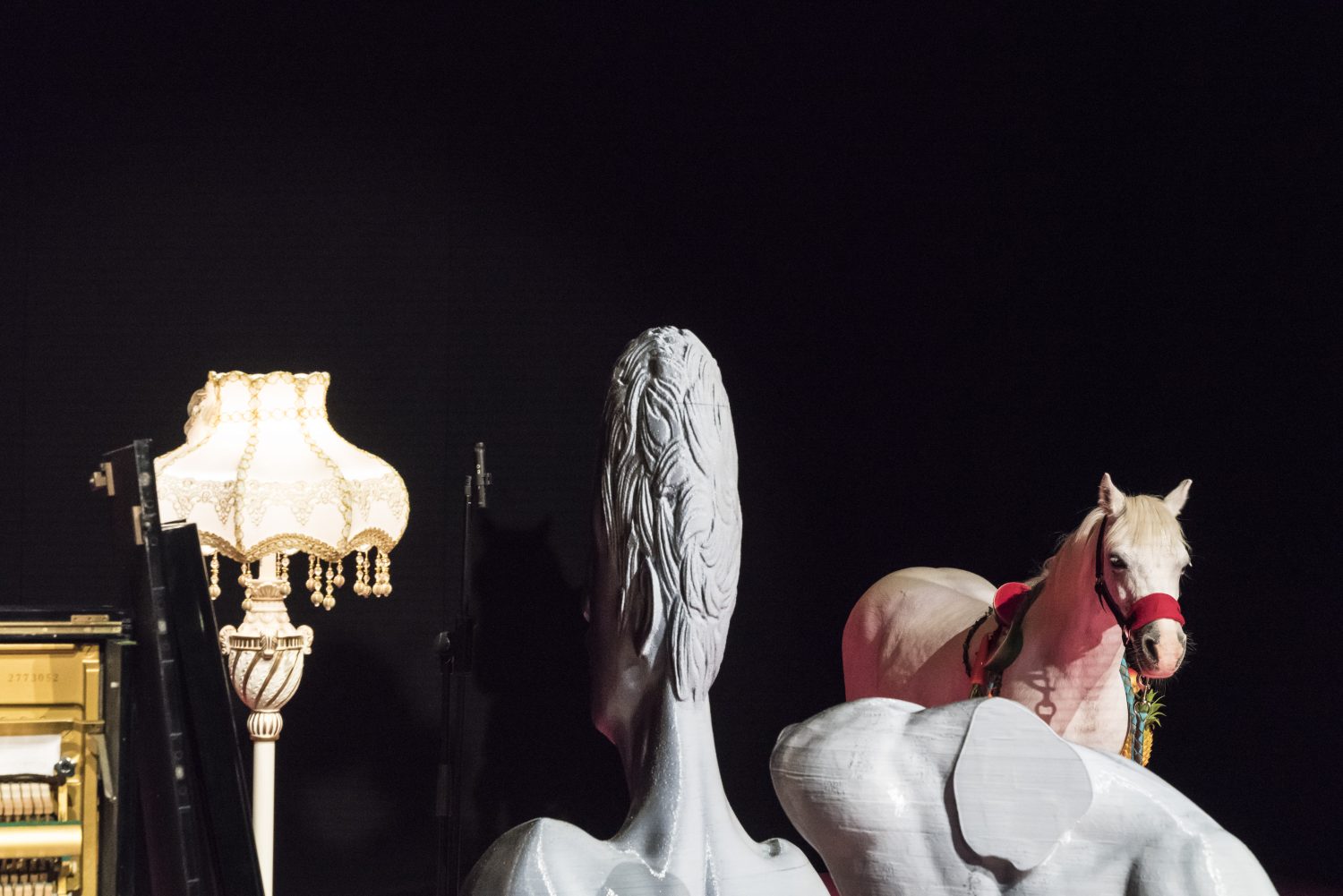The World Falls Apart Into Facts
Young focuses on several iconic musical pieces from China to examine the transmission and legitimacy of culture. The folk song Molihua was introduced to the west in the form of a musical score to British author John Barrow’s Travels in China during the Qing dynasty, and became a famous piece that has been used in the opera Turandot, and at the award ceremony at the Beijing Olympics. These widely known versions, however, are quite different from the original, as they have been augmented with western interpretations. “Kenny G-que pop” gained popularity in Hong Kong in the 1990s, and while benefiting from the prospering multi-national music industry in what used to be a free international port, it became a typical form of ”Hong Kong pop.” Meanwhile, togaku (Chinese music of the Tang dynasty) was introduced to Japan and developed into a staple of gagaku court music. A forgotten style in China today, ‘original form,’ according to some practitioners, has been preserved for its unique harmonies and rhythms; yet others have disputed this claim, to highlight the changability of musical cultures over the time.




